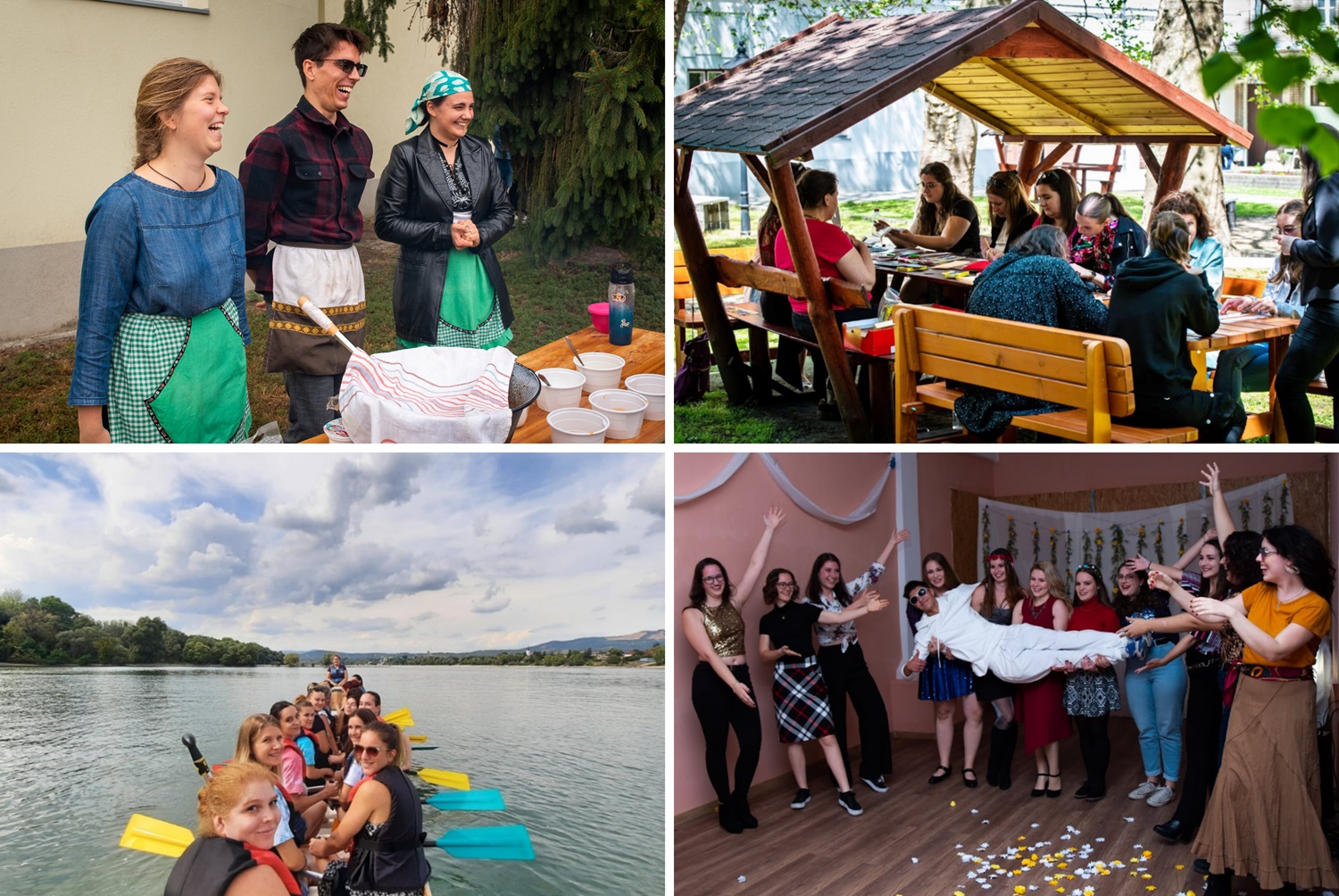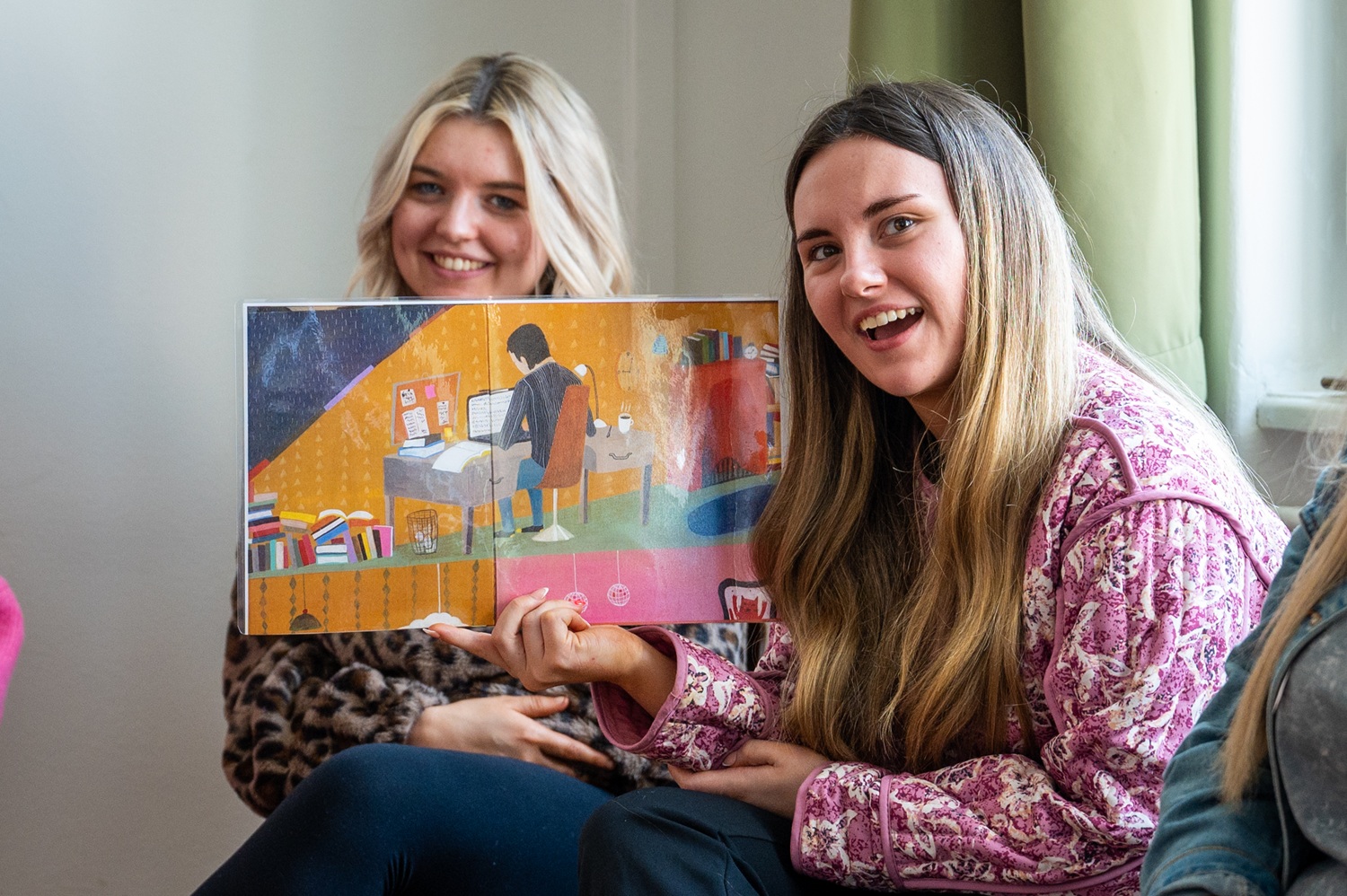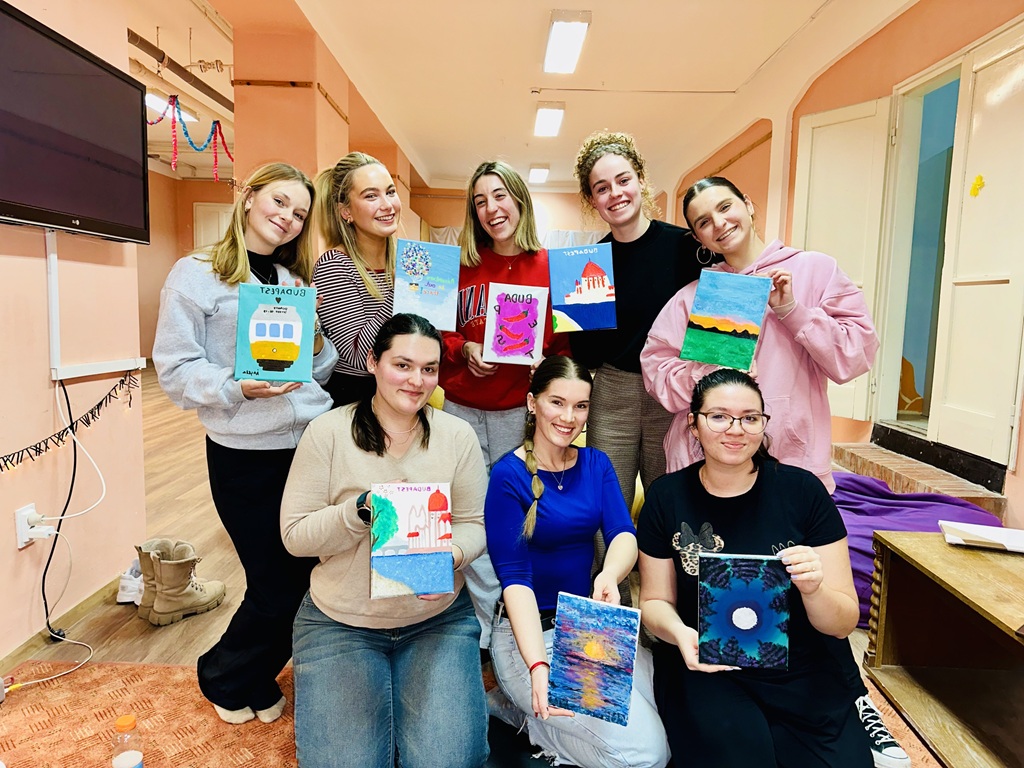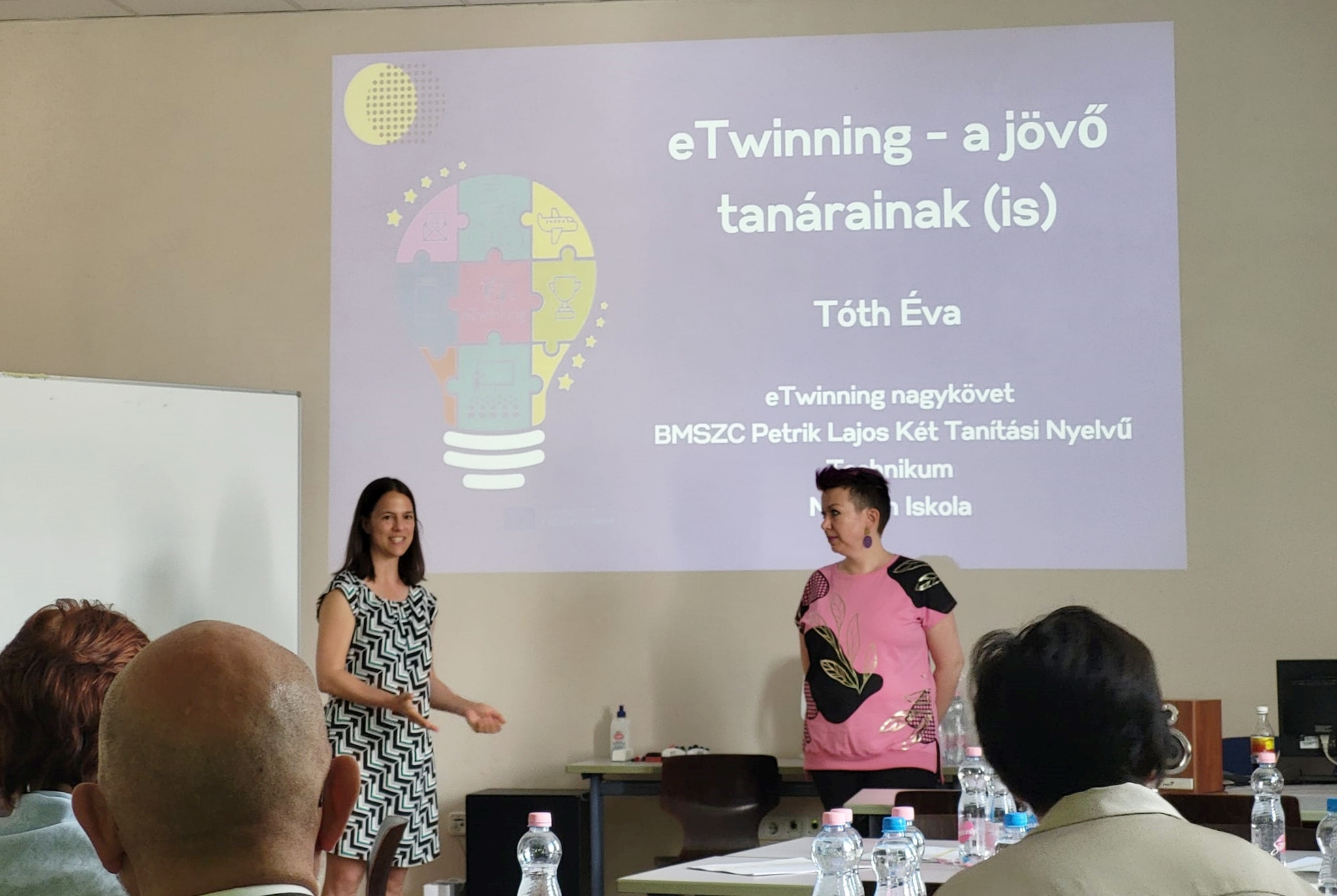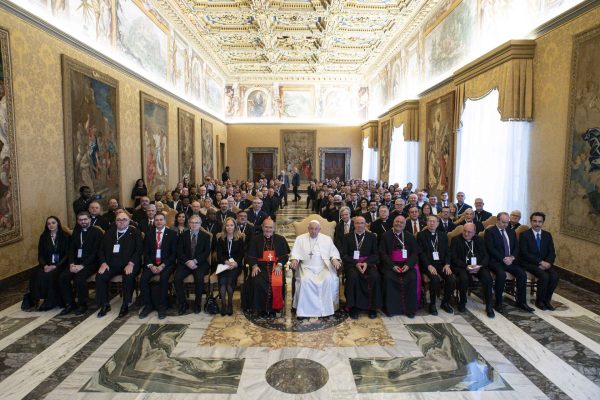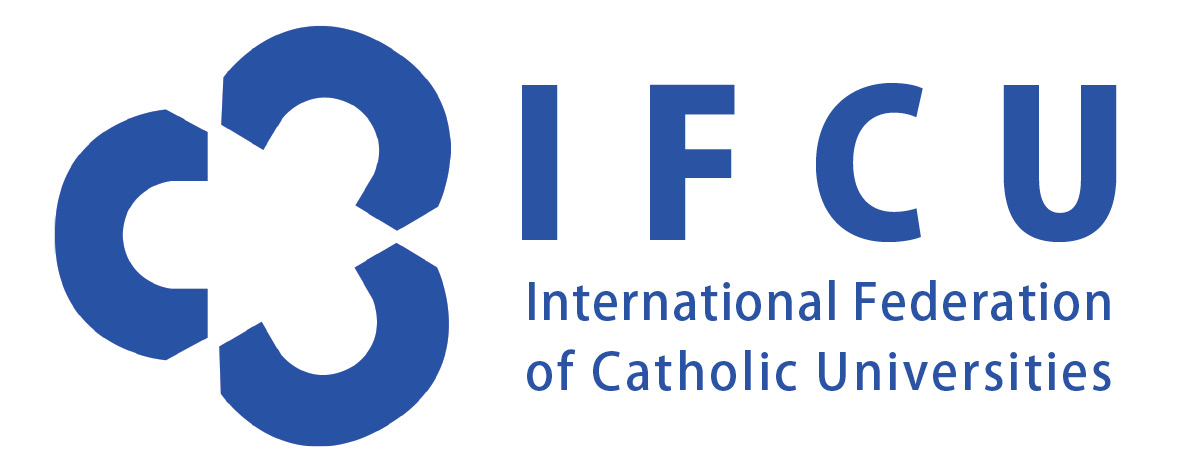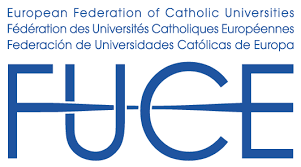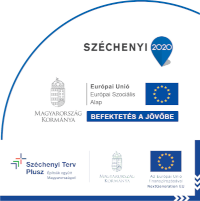Department of Religious Studies, Social Sciences and Romology
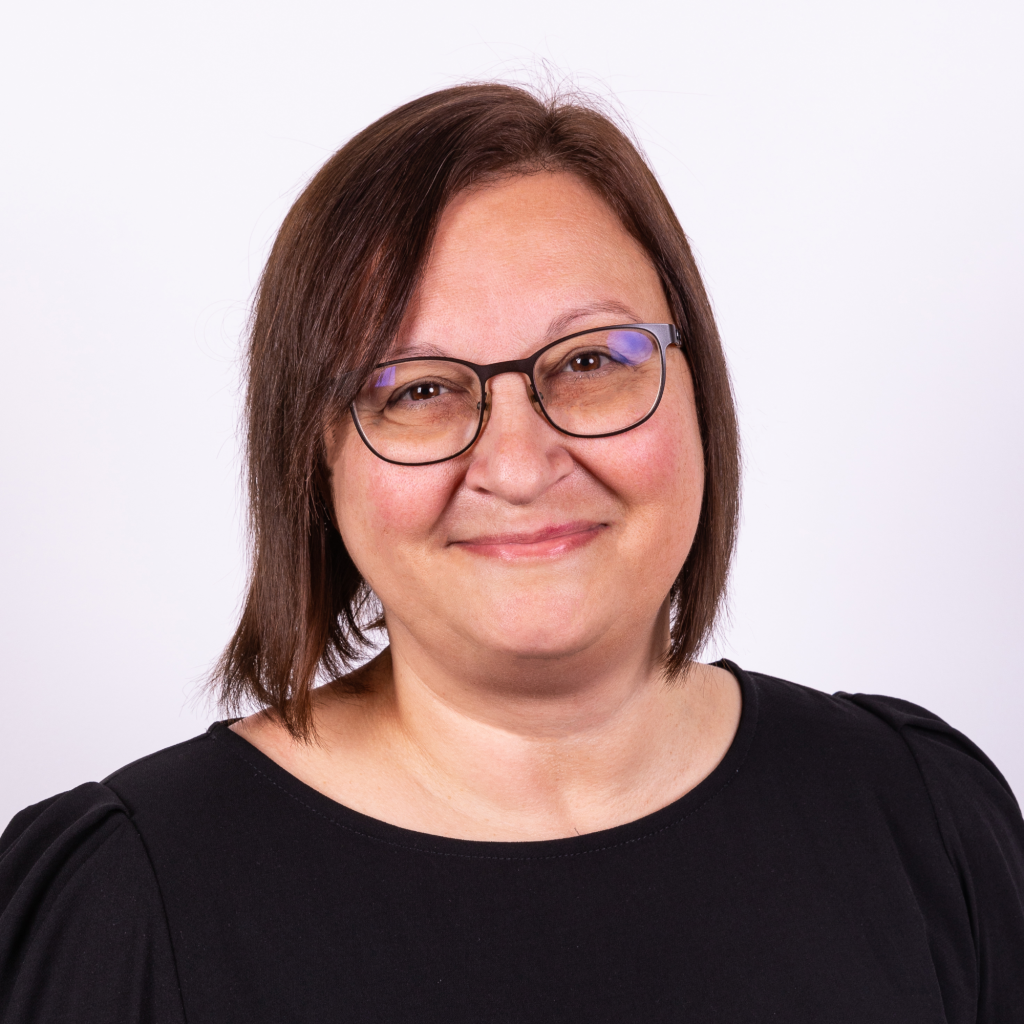 Dr. Nikoletta Mándi Csürkéné
Dr. Nikoletta Mándi Csürkéné
Head of Department
mandi.nikoletta@avkf.hu
Our department is responsible for the BA, MA and vocational programmes and courses in the field of Social Sciences (with special attention to Roma Studies) and Theology. Our programmes include Social Pedagogy BA and MA as well as Catechist-Pastoral Assistant BA. Although our programmes are highly practical, we also emphasize theoretical and academic research via professional research groups.
Our Social Pedagogy Research Group focuses on analyzing theoretical, methodological, educational and practical issues of Social Pedagogy. It aims to enhance professional identity by inviting alumni members and other guests from our field. The Group organizes specialized events, such as the SocialPed Café, which provides opportunity for professional discussions among our students and invited prestigious guests. Another yearly event since 2011 has been the Day of Roma Studies when students, colleagues and invited professionals can participate in an interactive all-day conference that includes workshops about good practices. Each year the event is dedicated to a certain special theme such as ‘The Catholic Church for Roma people,’ ‘Roma people and the family,’ ‘Roma people in the scientific world,’ or ‘Talent support.’ The research group also publishes a scholarly journal titled Social Pedagogy registered by the Hungarian Academy of Sciences (HAS).
The Spatial Pedagogy Research Group aims to serve as a center for a unique interdisciplinary approach by involving Hungarian and foreign experts of the field. It combines academic research with the practical methodology of Spatial Pedagogy. Based on this, a seminar course called ‘School Spaces and Use of Space in Inclusive Care’ has been running successfully since 2020. As partners of the HAS-AVCC Learning Environment Research Group led by Prof. Éva Gyarmathy since 2022, we have also developed study materials and postgraduate study modules for in-service teachers.
The Research Center for Social Integration was founded in 2023 under the supervision of Prof. Ernő Kállai. Our academic work and research are in line with our primary goal to support future social care professionals studying in our training programmes so they are able to serve people with dignity and commitment.
Department of Foreign Languages
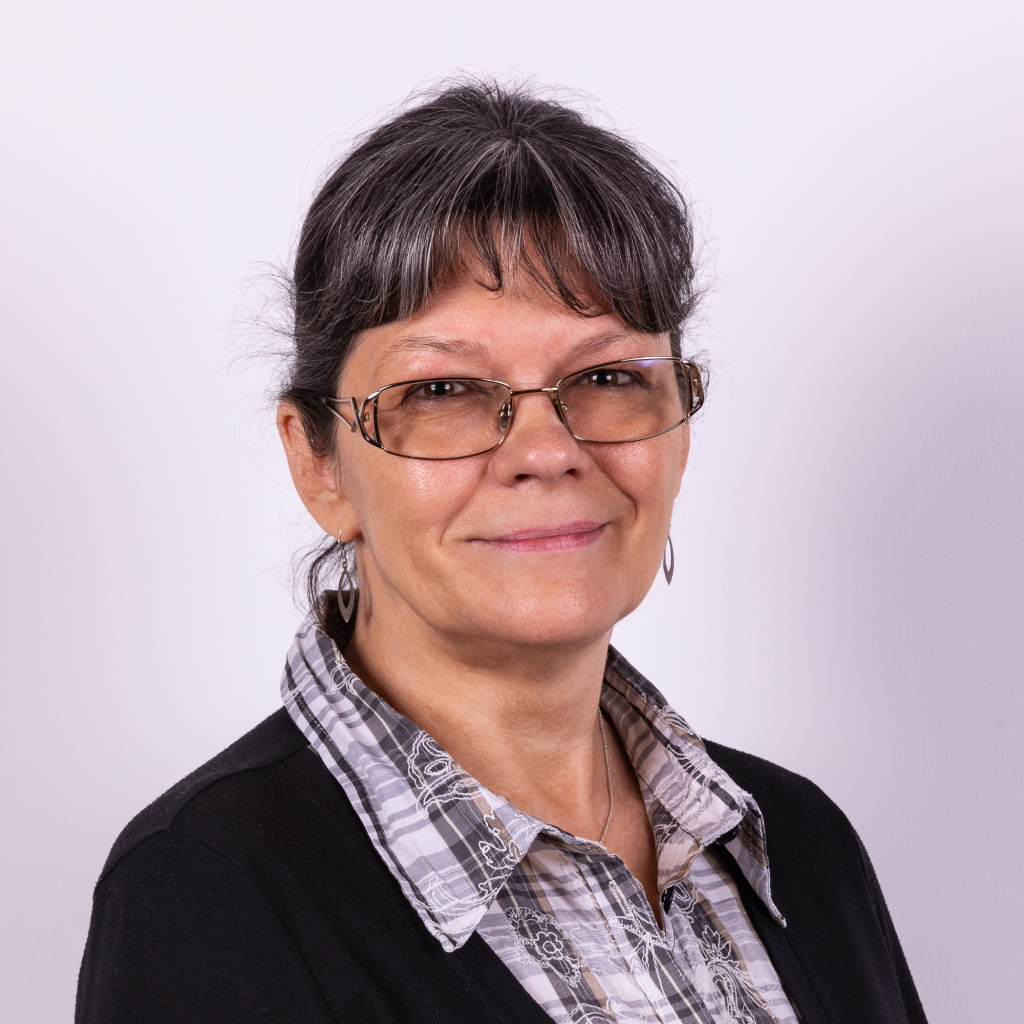 Dr. Ágnes Streitmann Bethlenfalvyné
Dr. Ágnes Streitmann Bethlenfalvyné
Head of Department
streitmann.agnes@avkf.hu
The Department of Foreign Languages offers comprehensive English and German programmes at both undergraduate and postgraduate levels. In addition to general language development, students may choose methodology courses preparing them to teach English in kindergarten and primary education. Specialisations include English for Infant and Early Childhood Care and primary English language teaching, also available in postgraduate training. Since 2018, the Department has operated a part-time Kindergarten BA Programme in English, incorporating bilingual education and CLIL modules in mathematics, environmental studies, visual arts, music and physical education.
The Department plays a significant role in preparing educators for German minority primary schools and kindergartens. Alongside English and German modules, it is responsible for Slovak and Romani as minority languages, and drama and puppetry courses as well in both undergraduate and postgraduate education.
Research and innovation form an essential part of our profile. Staff members regularly organise and present at national and international conferences, including the annual Early Childhood Education Conference and the National German Prose and Poetry Competition, both organized by the College.
Internationalisation is a key priority. The Department actively participates in Erasmus+ and other international programmes organized by the College, with colleagues closely involved in teaching, managing and developing innovative courses within the Erasmus Semester, as well as delivering workshops as part of the Blended Intensive Programme (BIP) for both international and domestic students.
Additional activities comprise translating and reviewing abstracts, scholarly papers written in English for the professional journals published by the College and organizing community events such as the Christmas Party.
The Department also hosts the Centre for Drama Education, which integrates drama pedagogy across degree programmes and postgraduate studies. Grounded in active engagement and community learning, the Centre promotes experiential learning, storytelling, puppetry and role-based processes. Drama is understood as a dynamic, future-oriented educational approach that connects teaching, community development and cultural mediation, responding creatively to contemporary educational, social and cultural challenges.
Department of Hungarian Language and Literature, Art and Church Music
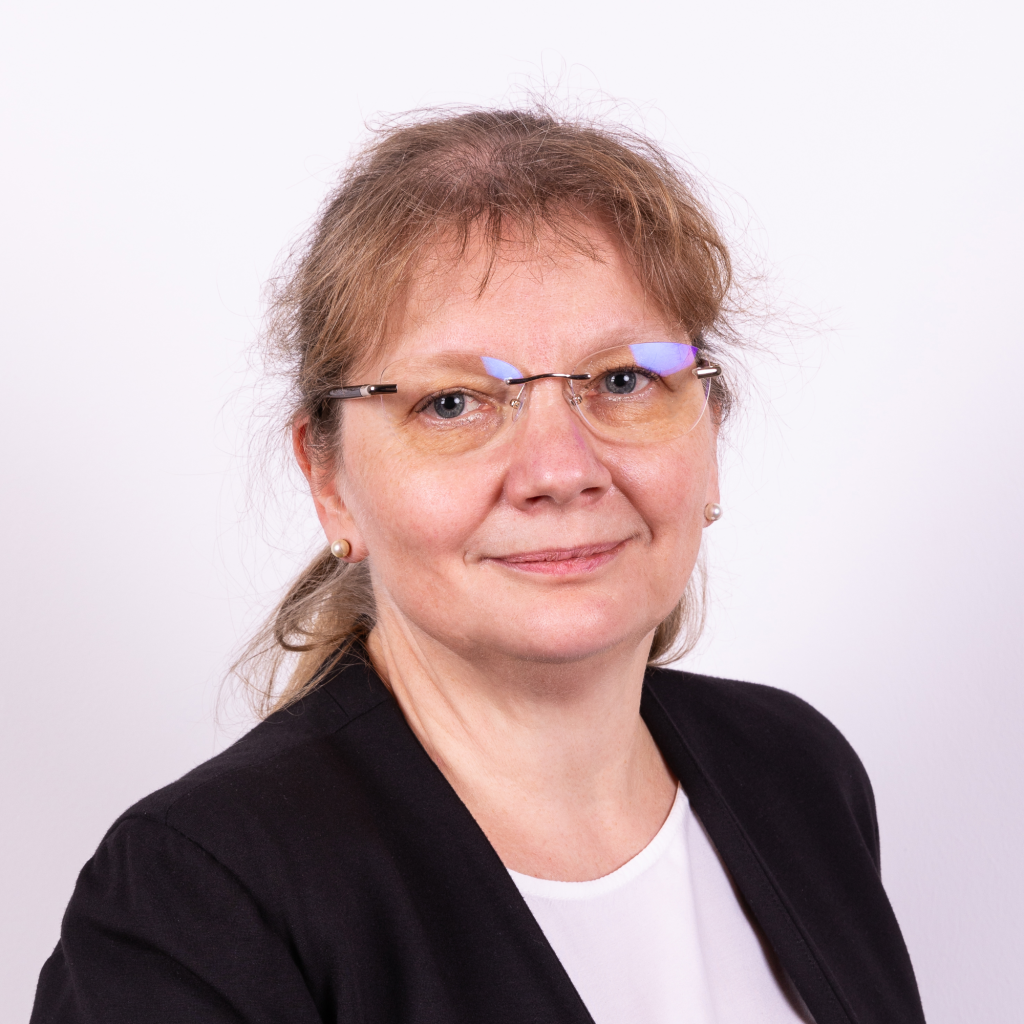 Dr. Katalin Zóka
Dr. Katalin Zóka
Vice Rector, Head of Department
zoka.katalin@avkf.hu
The Department’s activity encompasses the following major fields: complex visual art education, music education and church music, Hungarian as native language and literature, and Slovak ethnic culture and pedagogy. Our lecturers are in charge of two BA programmes (Chorister, Kindergarten Educator), a national minority specialisation (Kindergarten Educator with Slovak Ethnic Specialisation) as well as two postgraduate training courses (Senior Kindergarten Teacher, Kindergarten Music Educator).
Music-Church Music Group: Our teachers are also active as performing artists. In addition to their college and secondary school teaching and performing activity, one of the three co-workers with DLA degree pursues academic research, and another young colleague who is planning to start a PhD programme is also engaged as a researcher in the public education development project of the Hungarian Academy of Sciences.
Visual Arts Group: In addition to teaching, our colleagues are engaged in creative artistic activity, successfully integrating it into their work of art pedagogy. They organise inspiring, artistic awareness raising competitions for Apor students as well as interested secondary school pupils thus building rapport with public education. Their exhibitions establish fruitful relationships with diocesan and regional institutions. Their popular complex creative arts camps also strengthen cohesion among the students of the different training programmes.
Hungarian Literature and Linguistics Group: Alongside our educational activity, we also organize regular scientific events such as domestic and international conferences, competitions for secondary school students, as well as performances. Our colleagues successfully coach students for national competitions. One of our lecturers is the chief editor of the college periodical called Anyanyelvi és Irodalmi Nevelés (Hungarian Language and Literature), others contribute as editors, professional proofreaders or authors. The periodical does not only offer publication opportunity; it is also an effective tool of organizing scientific activity.
Department of Psychology and Physical Education
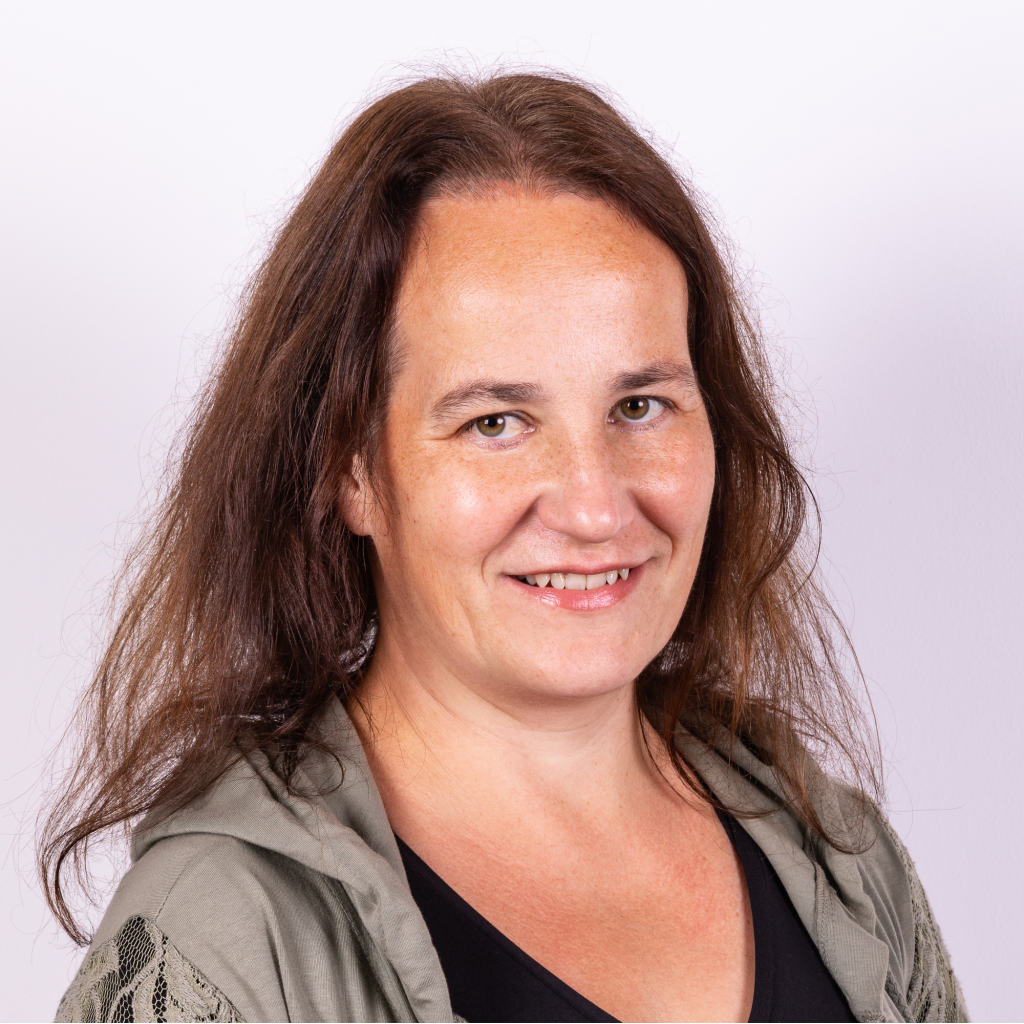 Dr. Judit Gombás
Dr. Judit Gombás
Head of Department
gombas.judit@avkf.hu
The Department of Psychology and Physical Education (DPPE) was established in 2019 and is one of the youngest units of the College. In our teacher training programmes, as well as in our MA and postgraduate specialisation programmes, we offer courses in psychology, mental health, self-awareness, child protection, talent development and professional skills development in both Hungarian and English. We are confident that joyful and recreational physical movement is the foundation of healthy personality development and psychological and mental health. Our students can learn and experience this in the Department’s physical education courses.
In the heart of DPPE’s mission is the development of students’ skills, abilities, and competencies in both cognitive and non-cognitive areas. This is reflected not only by the College’s curricula and particular courses, but also by the attitude and the vision of our dedicated staff.
The Department is made up of nine full-time and over forty part-time teachers. This diverse professional community guarantees a versatile and practice-oriented training. DPPE is responsible for the following study programmes:
Our Department is also a workshop of internationally renowned research and publications. The Atypical Development Methodology Centre won an Erasmus+ KA220-HED – Cooperation partnerships in higher education a two-year research grant in 2023. We highly recommend the recent studies authored and co-authored by Dr. Éva Gyarmathy:
Senior, John and Gyarmathy Éva. AI and Developing Human Intelligence: Future Learning and Educational Innovation. London: Routledge, 2021.
David, Hanna and Éva Gyarmathy. Gifted Children and Adolescents Through the Lens of Neuropsychology. Berlin: Springer-Verlag, 2023.
Senior, John and Gyarmathy Éva. The Mental Health of Gifted Intelligent Machines: AI and the Mirror of Human Psychology. London: Routledge, 2024.
Department of Pedagogy
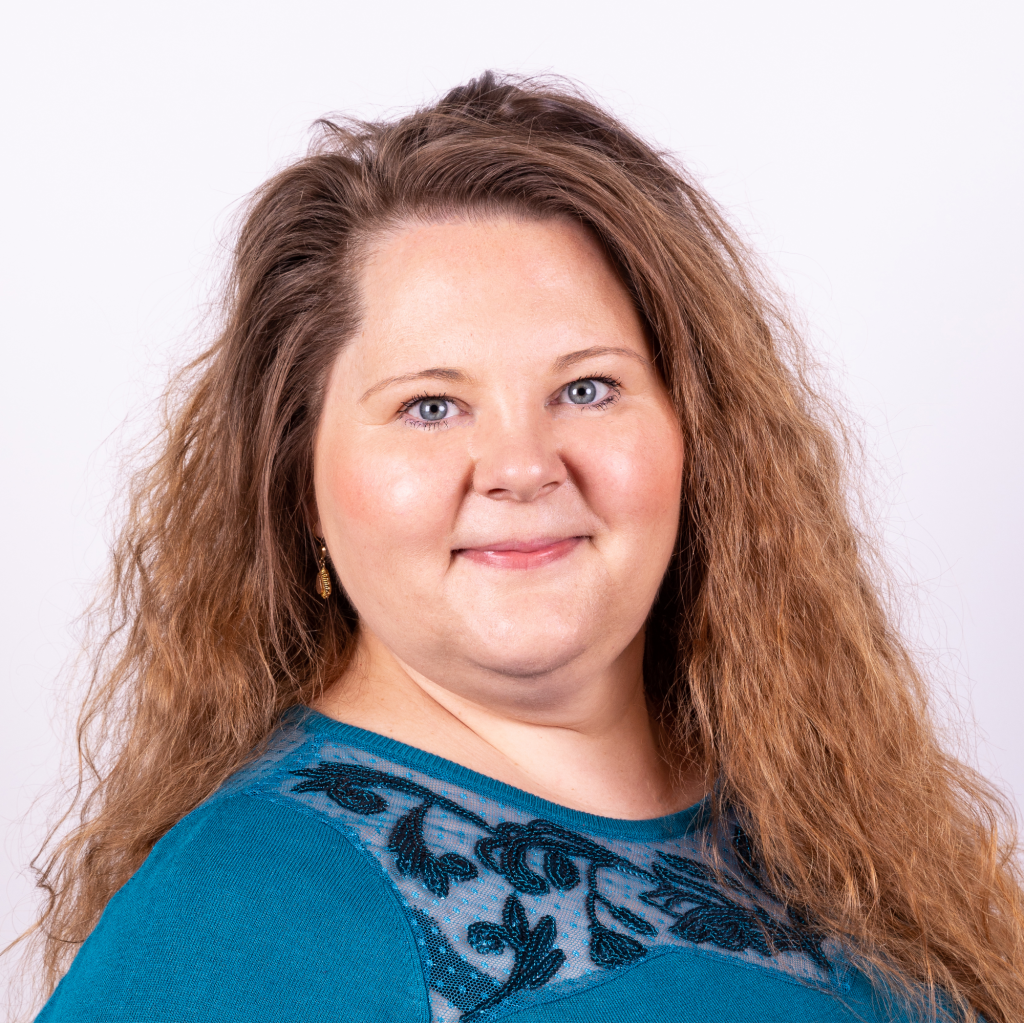 Dr. Krisztina Molnár
Dr. Krisztina Molnár
Head of Department
molnar.krisztina@avkf.hu
The Department is in charge of the pedagogy subjects in the bachelor, master and postgraduate programmes of our College. Our aim is to prepare students for the effective cultivation of the pedagogical profession, for the development of their competences, and for a career in research by providing the latest scientific knowledge and by organising learning in an experiential, activity-based and collaborative way. We aim to set an example for the present and future teacher generations by our personal authenticity, teaching culture and dedication.
We aim to take part in the professional discourse in and outside our institution in line with the profile of the College, focusing on the pedagogical reality of the 21st century with a Christian intellectual’s responsibility. Accordingly, there are two professional work groups in the Department which establish links between student talent support, the scientific activity of lecturers and the internal and external collegial relations. The Christian Educational Research Group provides a professional foundation for the annual Conference on Christian Education and for the international periodical Katolikus Pedagógia [Catholic Pedagogy] published twice a year, whereas the Methodological Research Group, besides transmitting contemporary innovations, coordinates the activity of two independent organisational units, the Methodological Centre for Organic Pedagogy and the Methodological Centre for Alternative Pedagogical Approaches, with the result of two conferences and six workshops per year ensuring an ongoing collaboration with the institutional networks based on organic pedagogy and alternative pedagogical approaches respectively.
In the training system of the College, our lecturers are in charge of the following training programmes: Infant and Early Childhood Educator BA, Primary School Teacher BA, Educational Science MA, In-Service Training in the Field of Developmental-Differentiating Pedagogy, In-Service Training in The Field of Organic Pedagogy, In-Service Training in The Field of Alternative Pedagogies. In 2023, a Special Education BA programme was also developed by the Department.
Department of Mathematics, Natural Sciences and Informatics
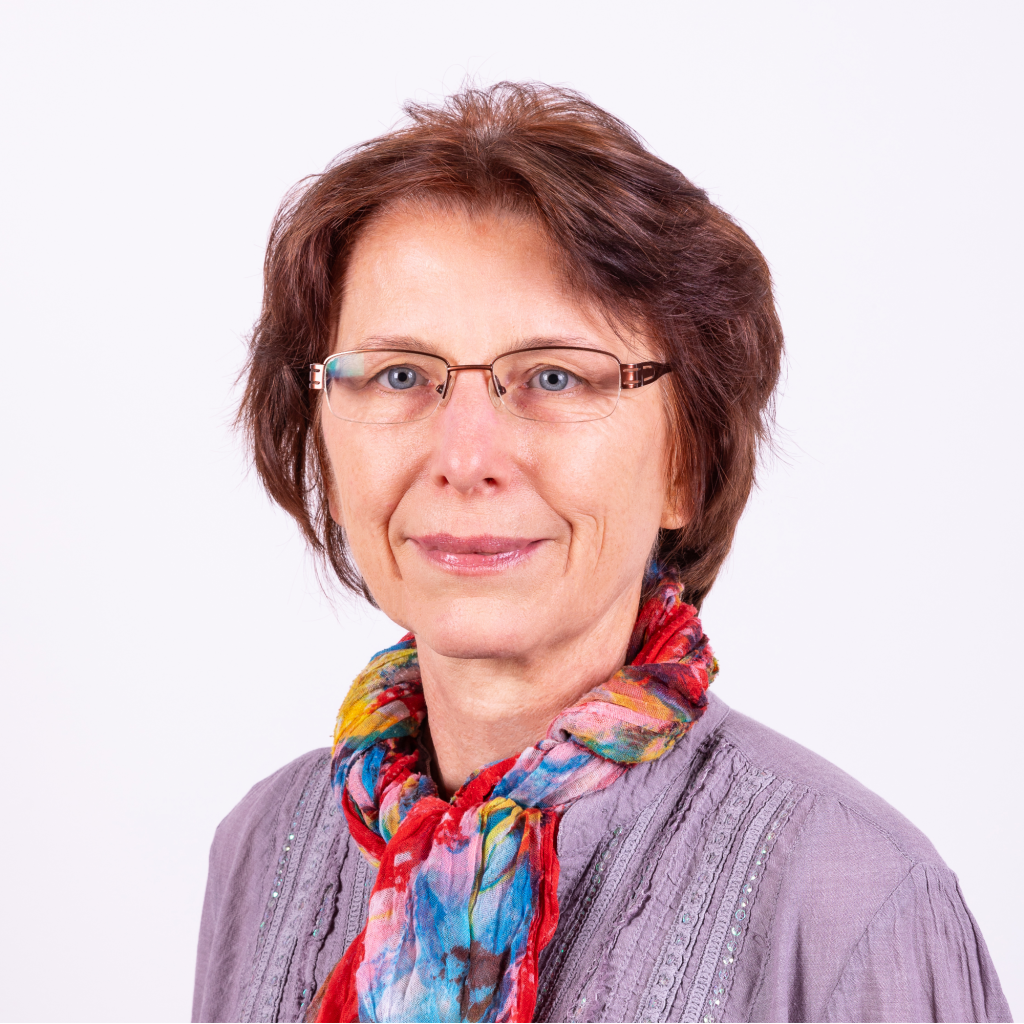 Dr. Anna Runyó Megyeriné
Dr. Anna Runyó Megyeriné
Head of Department
megyerine.anna@avkf.hu
The Department of Mathematics, Natural Sciences and Informatics is present in the full spectrum of the programmes (BA, MA, in-service training, adult education) at Apor Vilmos Catholic College, though our lecturers are primarily involved in the kindergarten educator and teacher training programmes. The lecturers are specified in the different fields of natural sciences, and are responsible for the subjects related to science, mathematics and ICT.
Due to the character of the subjects, the training is of practical character: it uses interdisciplinary approach and builds on the processes, tools and methods of experiential pedagogy and problem-based learning. The department is particularly concerned with the theoretical and practical interpretations of the pedagogical aspects of environmental education, sustainability and creation care.
Our lecturers take part in talent support, in the coordination of the work of the students’ scientific association, in the recruitment, organisation and management of the applications to the National Scientific Conference of Students (OTDK).
Since our department prefers and applies modern educational theories and practice, we run a study group named Science Education. It aims at supporting, inspiring and catalysing research and development of the foundation of scientific knowledge acquisition and thinking in childhood. Our students work in special locations like gardens, greenhouses, nature reserves, forest schools, nature trails, urban green spaces as well as in the archives. The tools, models, maquettes, simple instruments, drawings, toys, maps or puppets made by the students replicate in miniature some parts, phenomena or processes of nature. All these help our students as future teachers to make children perceive and understand the environmental phenomena and processes in terms of spatial and time scales through experience.
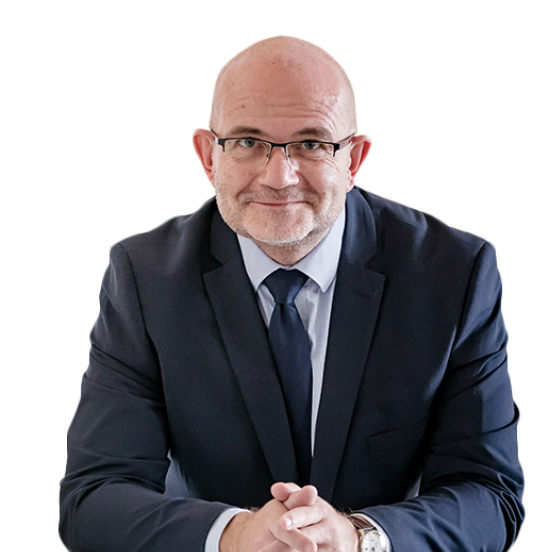



 Dr. Ágnes Streitmann Bethlenfalvyné
Dr. Ágnes Streitmann Bethlenfalvyné Dr. Katalin Zóka
Dr. Katalin Zóka Dr. Judit Gombás
Dr. Judit Gombás Dr. Krisztina Molnár
Dr. Krisztina Molnár Dr. Anna Runyó Megyeriné
Dr. Anna Runyó Megyeriné